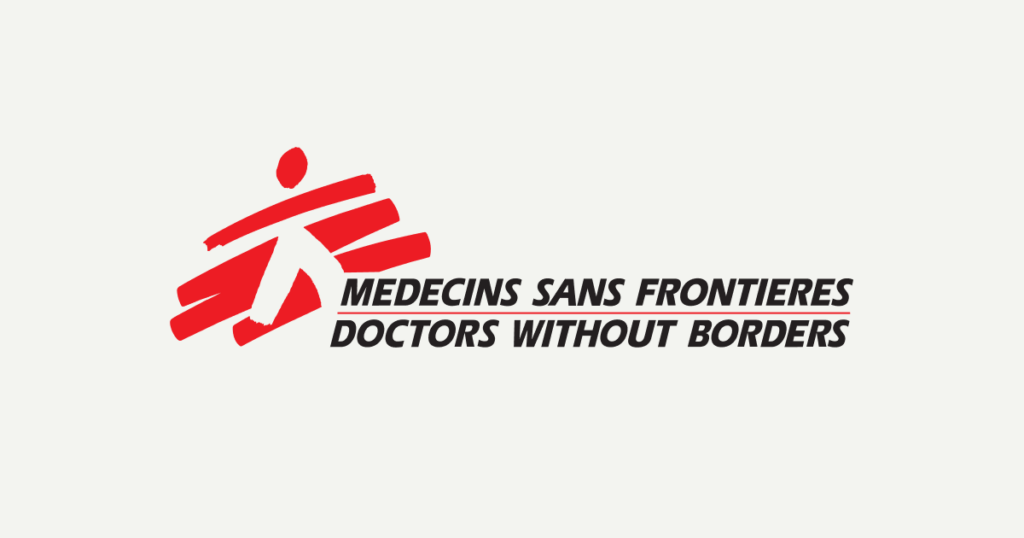Doctors Without Borders

Credit: Doctors Without Borders
| Giver: | Registered Organization |
|---|---|
| Receiver: | Individual or unstructured/informal group |
| Gift: | Items, Time, Voice/Advocacy |
| Approach: | Philanthropy |
| Issues: | 3. Good Health and Well-Being |
| Included in: | Humanitarianism & Philanthropy, Volunteerism |
Médecins Sans Frontières (MSF), or Doctors Without Borders, is an international humanitarian nonprofit that delivers emergency medical aid to people affected by conflict, natural and human-made disasters, disease outbreaks and social exclusion. MSF adheres to the core humanitarian principles of independence, impartiality and neutrality, yet breaks from traditional humanitarianism in its commitment to témoignage (bearing witness). Avowing a duty to speak out about the suffering and injustices they see, MSF offers a distinctive model of humanitarian generosity – one that rallies the world’s attention to people in crisis who might otherwise be forgotten.
Médecins Sans Frontières was founded in Paris in 1971 by a small group of French doctors and journalists. Some had worked with the International Committee of the Red Cross (ICRC) during the Nigerian Civil War in Biafra, and had been frustrated by the ICRC code of confidentiality that prevented them from speaking out about the atrocities they had witnessed. The group resolved to establish a medical aid organization that embraced témoignage as a central part of its mission while providing its services sans frontières – undeterred by geographic and political boundaries. “It’s simple really: go where the patients are,” founding member Bernard Kouchner famously explained. “It seems obvious, but at the time it was a revolutionary concept because borders got in the way.”
From its original team of 300 volunteer doctors, nurses, logistics experts and support staff, MSF grew into a powerful social movement. With its global headquarters in Geneva and 24 sections worldwide, . MSF employs more than 63,000 staff who provide medical care to millions of patients in over 70 countries. Deriving ninety-seven percent of its overall contributions (EUR 2.25 billion in 2022) from 7 million private donors, the organization is able to deploy its teams quickly, without waiting for governments and other institutions to release emergency funding.
Médecins Sans Frontières has been on the front lines of every major humanitarian crisis in the last half century. The organization spoke out forcefully against abuses of power by the Ethiopian government during that county’s historic famine in the mid-1980s, demanded (albeit unsuccessfully) the deployment of UN peacekeepers to stop the genocide in Rwanda in 1994 and criticized international inaction during the Ebola epidemic in West Africa in 2014.
At times, MSF has been sanctioned by government authorities displeased by the indiscretion of its witnessing activities, which has hindered its ability to reach patients in the field. Still, the organization has never wavered in its commitment to témoignage.
MSF received the Nobel Peace Prize in 1999. Accepting the award on behalf of the organization, then-international president James Orbinski spoke of the importance of bearing witness: “Silence has long been confused with neutrality, and has been presented as a necessary condition for humanitarian action. From its beginning, MSF was created in opposition to this assumption. We are not sure that words can always save lives, but we know that silence can certainly kill.”
Contributors: Maha Tazi, Dion McDougal, Erin Brown
| Source type | Full citation | Link (DOI or URL) |
|---|---|---|
| Book |
Fox, Renée. Doctors Without Borders: Humanitarian Quests, Impossible Dreams of Médecins Sans Frontières. Baltimore: John Hopkins University Press, 2014. 9781421413549 |
9781421413549 |
|
Heyse, Liesbet, and Valeska Korff. “Médecins Sans Frontières: Guardian of Humanitarian Values.” In Guardians of Public Value: How Public Organisations Become and Remain Institutions, edited by Arjen Boin, Laura A. Fahy, and Paul ‘t Hart, 263-93. Cham: Palgrave Macmillan, 2021 |
https://link.springer.com/chapter/10.1007/978-3-030-51701-4_11 | |
| Publication |
Orbinski, James. “Médecins Sans Frontières – Nobel Lecture.” The Nobel Prize. Lecture. Accessed April 19, 2024. |
https://www.nobelprize.org/prizes/peace/1999/msf/lecture/ |
| Book |
Redfield, Peter. Life in Crisis: The Ethical Journey of Doctors Without Borders. Berkeley: University of California Press, 2013. |
9780520274846 |
| Publication |
Shevchenko, Olga, and Renée C. Fox. “‘Nationals’ and ‘Expatriates’: Challenges of Fulfilling ‘Sans Frontières’ (‘Without Borders’) Ideals in International Humanitarian Action.” Health and Human Rights 10, no. 1 (2008): 109–22. |
https://doi.org/10.2307/20460093 |